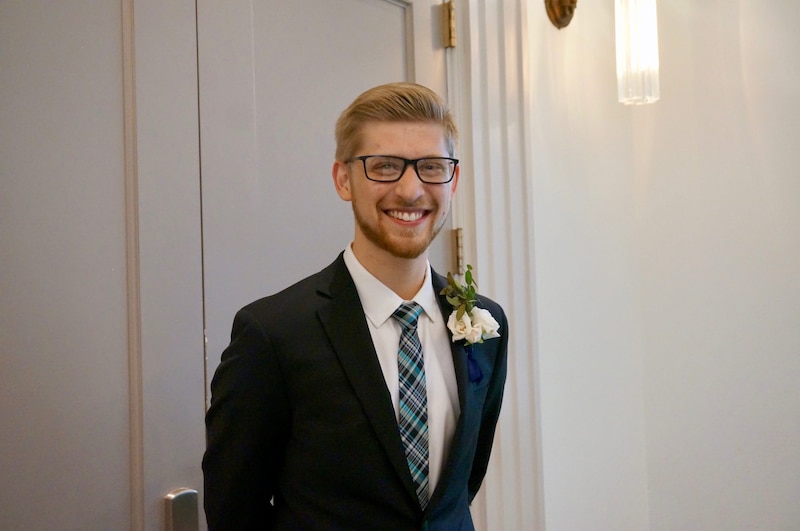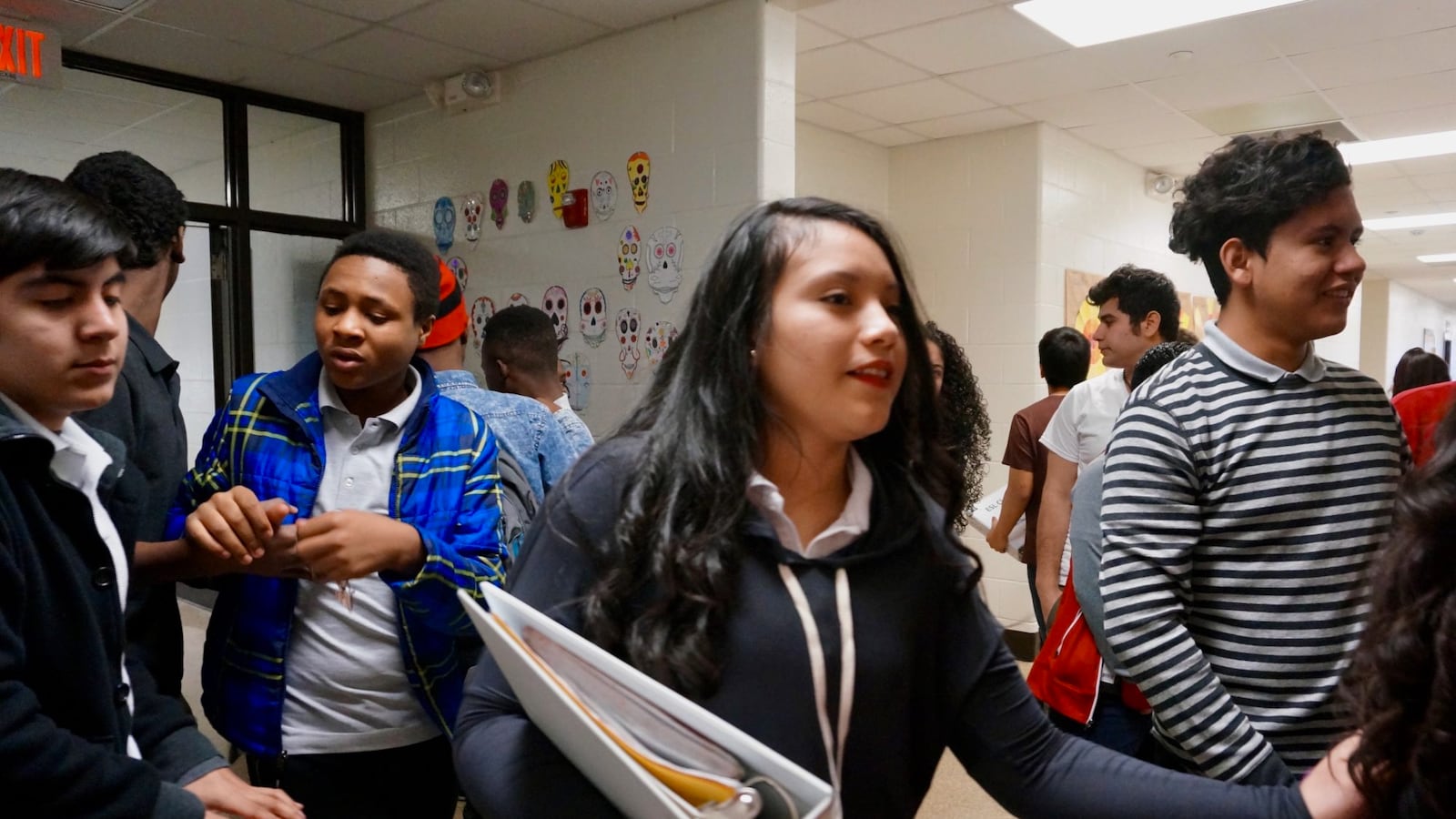Here, in a feature we call How I Teach, we ask educators who’ve been recognized for their work how they approach their jobs. You can see other pieces in the series here.
Coming from at least 30 different countries and speaking 20 languages, Ethan Hoffman’s students often face more challenges than his ninth-grade math classes.
Hoffman teaches in Indianapolis Public Schools’ Newcomer Program, a three-year-old initiative geared toward educating Indianapolis immigrants and refugees. The program has opened his eyes to other parts of the world, he said — including places roiled by violence and oppression.
“I have learned how deeply every person wishes to be heard and understood,” said Hoffman, who recently won the district’s 2020 Teacher of the Year distinction.
When working to ensure those students walk away with critical skills in basic math, Hoffman said he has to find ways to make material relevant across multiple cultures and levels of understanding.
One lesson he uses in his international classroom is teaching how abstract math concepts like linear functions can help illustrate to his students how they can make substantial gains in English learning through daily habits.
We followed up with Hoffman to learn more about how he bridges gaps in learning, language barriers, and the different cultures that drive his classroom.
This interview was edited for clarity and length.

Was there a moment when you decided to become a teacher?
I don’t think there was a specific moment in which I decided to become a teacher, but I can say that I’ve been blessed with many opportunities over my life to slowly grow in my teaching capacity and my love for helping others. As I grew up and went through my own learning experiences, I always found joy in supporting others and ensuring that they were able to find their own success in their studies. Further on in my education, I recognized that this joy was not temporary, but instead a calling on my life.
How do you get to know your students?
I approach small, everyday moments with curiosity and positivity. I believe asking students about their doodles, interacting with them at lunch, and seeking to care for them as individuals drives them to open up about their own thoughts, needs, and aspirations for the future.
Tell us about a favorite lesson to teach. Where did the idea come from?
One unit that is particularly special to me is the introduction to functions. I teach pre-Algebra and Algebra 1 classes to many students with an interrupted education or a lack of quality education. Many of these students have only ever seen math as a class dedicated to rote calculations and mindless operations. Introducing functions to my students allows them to see the beauty of mathematics in describing the world around us and making accurate predictions for future results.
As students mature toward adulthood, they must learn that effort must be made in the present moment to gain positive results in the future. This is particularly true for all of my students as they are English learners and must patiently and diligently work to acquire skills for their new language. As students learn about linear functions, they can see that committing to learn five new English words each day will increase their vocabulary by almost 2,000 words after one year.
What’s something happening in the community that affects what goes on inside your class?
One major issue that we face is the lack of personal interaction and the development of empathy for others. Much of our contact with others is not through personal means, but instead conducted through technological modes of communication. This produces a society of individuals that are theoretically connected, but not emotionally bonded. This results in a classroom dynamic that is less like a community and more like a collection of isolated individuals.
Tell us about a memorable time — good or bad — when contact with a student’s family changed your perspective or approach.
Working with students who come from all different countries as immigrants or refugees has opened my eyes to parts of the world that I’ve not yet seen. Hearing about the intense violence and oppression that students and families have faced in their own countries has made me realize how easy it is for me to take freedom, liberty, and security for granted. Through talking with families, I have grown in both appreciation for these blessings in my own life and awareness of my duty to care for those around me.
What part of your job is most difficult?
Meeting the needs of every student as they all come from such different backgrounds. I have students who speak many different languages in one classroom, and I am continually searching for more efficient and effective ways for them to communicate in a meaningful way. My students also arrive in the U.S. from a number of different cultures and face challenges in learning how to go through everyday life in such a new and sometimes strange setting.
What was your biggest misconception that you initially brought to teaching?
My biggest misconception that I brought to teaching was that failure was to be feared. Teaching is not about the avoidance of failure. It’s about using it to grow and improve in the future. When students are able to see me fail, overcome shame, and continually try again, that can have a positive influence.
What are you reading for enjoyment?
I’m currently reading a number of books on marriage because I will be getting married soon. I’ve been enjoying the opportunity to grow in knowledge and wisdom in the way that I can love and serve my wife in my future marriage. Just as with teaching and learning, it takes time, effort, and dedication to develop and grow relationships.
The majority of your students weren’t born in America. What have you learned from working with them that you couldn’t have gained anywhere else?
I have learned how deeply every person wishes to be heard and understood. I have recognized students who aren’t otherwise heard due to language barriers, or who are misunderstood because of cultural differences or overlooked because of non-traditional life experiences. My students must feel as though they are heard and understood so they can process trauma and move forward with schooling and life.
I believe that the same is true for everyone. Not everyone faces language barriers or great cultural divides, but all people have personal experiences that contribute to who they are. Listening to others and seeking to understand them better encourages them to grow and helps us to create community in the process.


